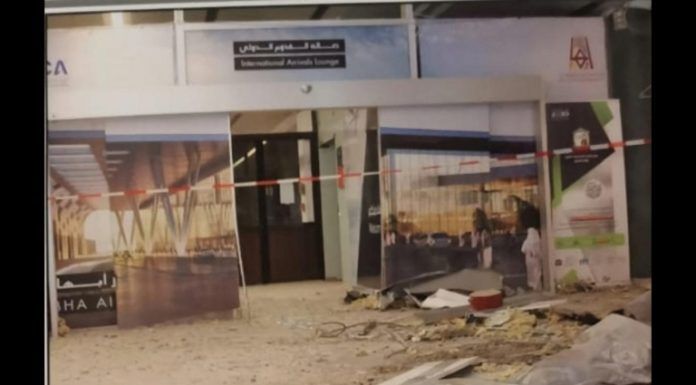CAIRO, June 15 (Reuters) – Yemen’s Houthi movement launched fresh drone attacks targeting Jizan and Abha airports, in southern Saudi Arabia, the group’s Al-Masirah TV said on Saturday, adding the installations were out of service.
Saudi-owned Al-Arabiya TV said Saudi forces had intercepted a ballistic missile targeting the southwestern city of Abha.
The Iran-aligned group said multiple drone strike targeted control rooms at Jizan airport and fuel station at Abha airport.
“The two airports are now out of service. We promise the Saudi regime with more painful days as long as the aggression and siege continue on our country,” the group’s armed forces spokesman said in a tweet published by Al-Masirah TV’s account.
The Houthis have launched several strikes targeting Abha regional airport since Wednesday, when a missile attack against the same airport had wounded 26 people.
The Saudi-led coalition, which intervened in 2015 in Yemen’s civil war to restore the government of President Abd Rabbu Mansour Hadi, said earlier this week it intercepted five drones that targeted Abha airport and Khamis Mushait in the same region.
In response to these attacks, the Western-backed coalition said it had destroyed Houthi military assets on the outskirts of the Houthi-held capital Sanaa.
It was unclear if there were any casualties following Saturday’s drone strikes.
Coalition leaders, Saudi Arabia and the United Arab Emirates, accuse Iran‘s Revolutionary Guards and Lebanon’s Iran-backed Hezbollah of supporting the Houthis, a charge all three deny.
The Houthis have stepped up missile and drone attacks against Saudi cities as tensions have risen between Iran and Gulf Arab states allied with the United States. Last month, the group carried out drone strikes on two Saudi oil pumping stations.
Tehran and Washington have engaged in a war of words since the United States reimposed sanctions on Tehran and increased its military presence in the Gulf.
The Yemen conflict is widely seen in the region as a proxy war between Saudi Arabia and Iran.
(Reporting by Ali Abdelaty; writing by Marwa Rashad; Editing by Andrew Cawthorne and Diane Craft)


